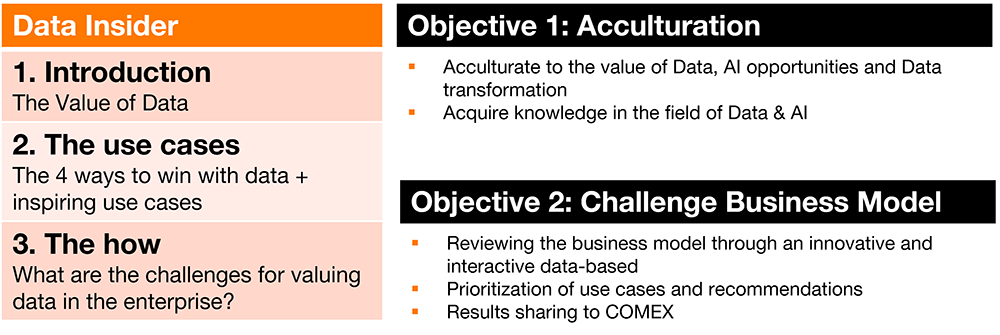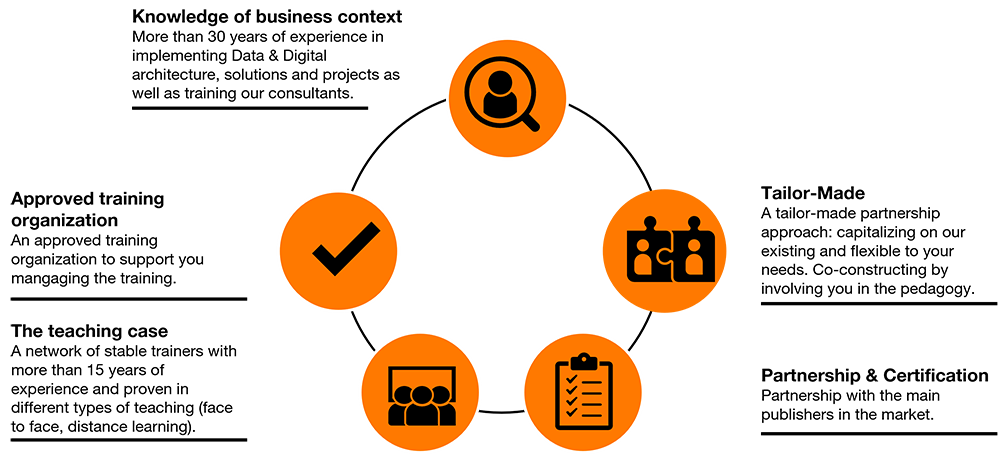How to adopt a data-driven culture?
In the way to success, engaging with employees is a crucial pillar that needs to be well prepared with a good vision (i.e. a good data strategy). The first key element of good adoption is to pass the right message to the right people in the organization. To answer this challenge, the best option would be to work with one hybrid data team which will include a mix of experienced employees and freshly hired data experts. On one side you will take full benefits from the network and the understanding of the company challenges; and on the other the data experts will translate your business pain points into tangible data topics.
In regards to this methodology, we can highlight 5 key steps to build a data culture:
- Study phase and sharing the vision
- Data Evangelization
- Operational pain points and requirements identification
- Project implementation
- Change management & deployment
"The more Data Governance is adopted, the more likely it will be used by a large number of people."









